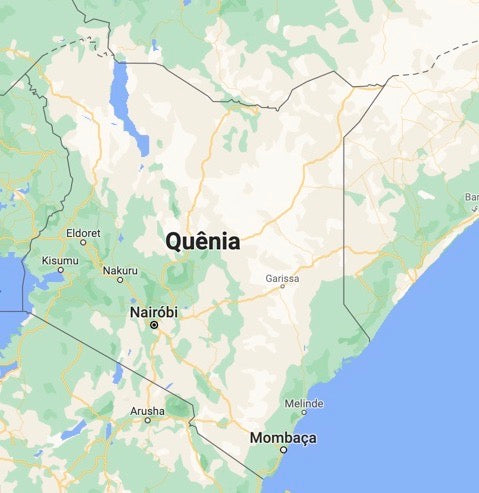
history of kenya
Text written by Karoline Tubben
Bearing in mind that Hai's works take place in Kenya, it is essential that we know a little more about this country and its history. For didactic – and space – purposes, this post is divided into sections, although, as an author, I do not agree with the use of the colonial period as a defining mark of African history.
pre-colonial period
Before the European invasion, native Kenyan communities organized themselves in a rural way and produced for their subsistence. Similar to other African societies, Kenyan groups led a community lifestyle, that is, work was done cooperatively and limited to the family. As a result, profit was not considerable, restricting commercial development. In the absence of Western liberal individualism, communities were not divided into classes – moreover, ethnic segregations were not as solid as elsewhere – nor did they differ with social inequalities (O'NEDGE, 2009).
british colonization
The presence of the United Kingdom in the territory now known as Kenya began at the end of the 19th century, more precisely in 1888, when the Imperial British East Africa Company was installed in the region. The commercial vein of British colonialism was its defining characteristic, since that is how Afro-British companies began in the mid-16th century - when British companies were granted a monopoly on trade in certain regions by the Crown. From the 18th century onwards, individual merchants were allowed to trade with African territories. First, a fee was charged to be paid to the Royal African Company, however, from 1726, the British government declared the African continent open to all citizens (INIKORI, 1992).
Following the rule of colonial rule, one of the striking features of the British presence in Kenya was the appropriation of native lands, since, unlike other territories under the British regime, the region did not have abundant mineral reserves. Through the imposition of a series of abusive taxes, the Kenyan people were forced to submit to work for British colonists or be punished with forced labor for not paying taxes. The objective – achieved – of this manipulation was to ensure cheap labor to sustain British economic development. Finally, in 1913, the monopoly of land use by the settlers was consolidated, when the UK government passed legislation granting the British population in Kenya 999-year leases (BHM, 2020).
After the First World War, the dissatisfactions of the colonized boiled exponentially, in view of the exploitative burden of taxes. A maximum of ¼ of income was legally authorized to be used for services aimed exclusively at the black population. Another point was the undignified treatment of Kenyan employees by their British employers, who justified the abuses by arguing that blacks were children to be disciplined. As a resistance to English oppression, it eroded the Mau-Mau Revolt in the period between 1952 and 1960. The militant group was a portrait of the emerging Kenyan nationalism, seen by Europeans as a type of "perverse tribalism driven by a combination of bestial impulses and communist influence " (THE COLONIZATION..., 2020).
At first, armed resistance targeted Kenyan citizens collaborating with the colonial regime, quickly evolving into series of targeted attacks on settlers. In response, a state of emergency was declared in which a policy of eviction of ethnic groups associated with the Mau-Mau was in force. In these lands, therefore, concentration camps were set up to process suspects, where various torture methods that are now considered war crimes were used to gather information (THE MAU-MAU..., 2018). Hussein Onyango Obama, grandfather of former US President Barack Obama, was one of the victims of the British reaction. Although sources differ considerably regarding the number of deaths caused by the British response, approximately 20,000 men, women and children were murdered during this period (THE COLONIZATION..., 2020).
Independence
Although African political organizations were banned during the period of the Mau-Mau Revolt, from the 1960s onwards, these parties created decades earlier strengthened and flourished. In response to nationalist movements on the continent – the year 1960 is considered by the UN the Year of Africa, due to the wave of conquered decolonizations –, the former British prime minister, Harold Macmillan, stated that colonies whose expenses were greater than profits should be waived (MINISTRY OF EAST AFRICAN COMMUNITY AND REGIONAL DEVELOPMENT, 2019). Thus, being considered expendable in the English view, Kenya gained its independence in a transactional way. During 1962 and 1963, the Kenya African National Union and the Kenya African Democratic Union articulated to form a coalition government in which Jomo Kenyatta – an activist involved and arrested during the Mau-Mau Uprising – was elected prime minister. On December 12, 1963, London announced that Kenya would become an independent state (WORLD..., 2021).
REFERENCES
MINISTRY OF EAST AFRICAN COMMUNITY AND REGIONAL DEVELOPMENT. History of Kenya . 2020. Available at: https://meac.go.ke/history-of-kenya/ Accessed: 5 Dec. 2021.
THE NEDGE, Peter. Presentation. Colonialism and its Legacies in Kenya . In: Fullbright – Hays Group. 2009, Kesses, Kenya. Available at: https://africanphilanthropy.issuelab.org/resources/19699/19699.pdf Accessed: 5 Dec. 2021.
THE COLONIZATION of Kenya. Black History Month . 2020. Available at: https://www.blackhistorymonth.org.uk/article/section/african-history/the-colonisation-of-kenya/ Accessed: 5 Dec. 2021.
THE MAU-MAU Uprising. South African History Online . 2018. Available at: https://www.sahistory.org.za/article/mau-mau-uprising Accessed on: 5 Dec. 2021.
WORLD War Two to Independence. BRITANNICA . 2021. Available at: https://www.britannica.com/place/Kenya/World-War-II-to-independence Accessed: 5 Dec. 2021.



Bem clara e sucinta. Parabéns por elucidar a história tão bem!